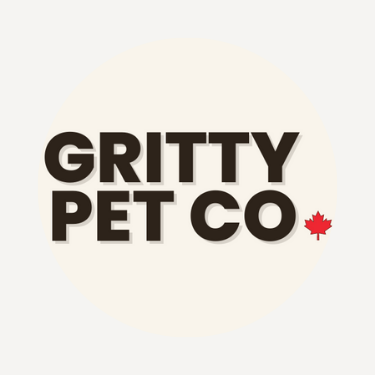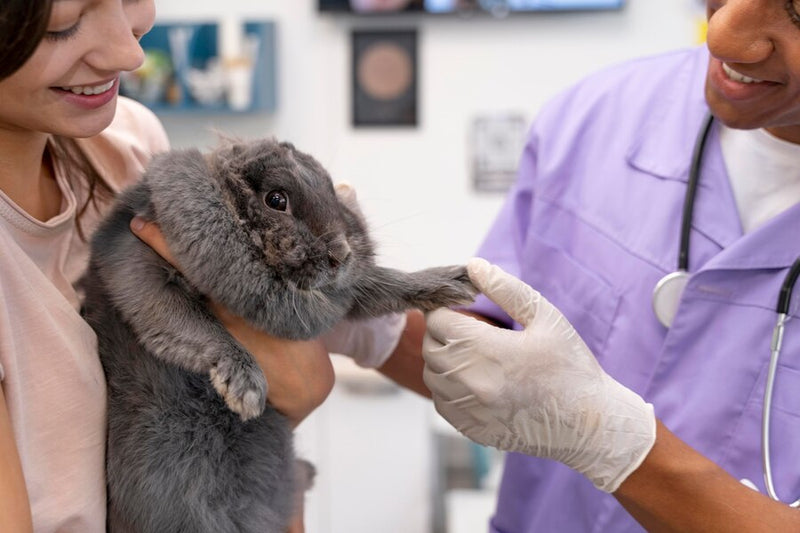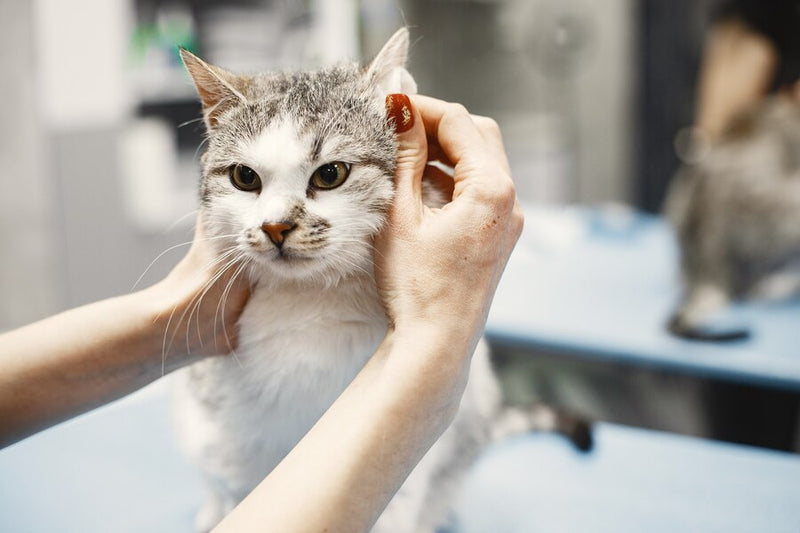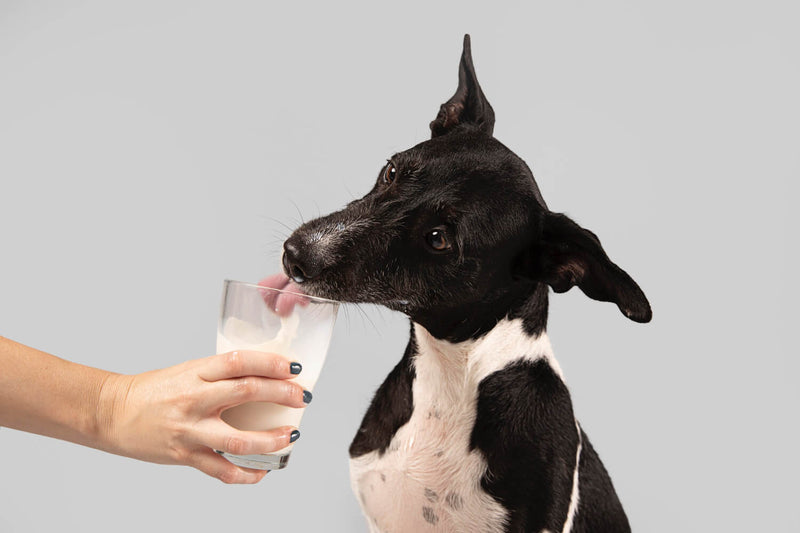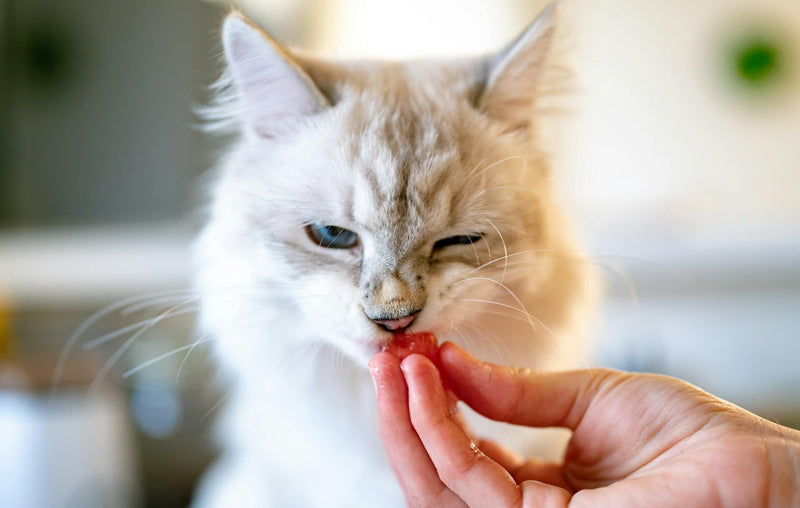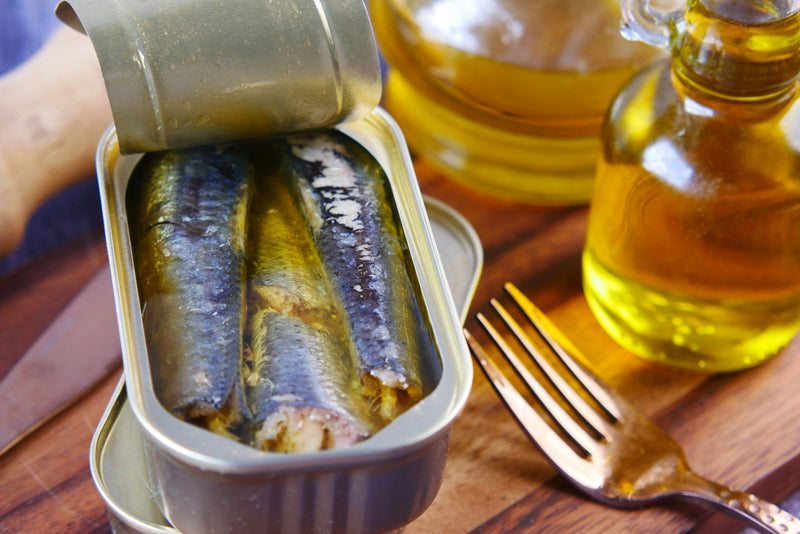
Welcome to Gritty Pet Co.
Your Canadian, specialty Pet Health & Wellness destination. 🇨🇦

Vet Reviewed & Approved
Dr. Ibrar A. is our veterinarian and a key member of our team. ✅
Today, we’ll learn about milk replacers for puppies, and explore their importance, nutritional significance, handling techniques, and even DIY alternatives. Welcoming a litter of puppies into the world is a joyous occasion, but it also comes with great responsibility.
Among the many tasks that come with caring for newborn pups, ensuring they receive proper nutrition is paramount. In cases where the mother's milk is unavailable or insufficient, milk replacers step in as lifesavers, providing essential nourishment crucial for their healthy development (1).
Key Takeaways
Nutritional Needs are Paramount: A puppy's diet must be rich in calories, proteins, and essential fats for proper development (2). The right milk replacer will ensure they receive these in abundance, similar to what they would get from their mother's milk. This is crucial for their overall growth and immune system strength.
Ingredient Quality Matters: Whether choosing a commercial milk replacer or considering a homemade option, the quality of ingredients plays a critical role (3). Look for formulas that include essential vitamins, minerals, and, if possible, probiotics to aid in digestion and nutrient absorption.
Observe and Adjust According to Puppy’s Needs: Each puppy is unique, and their needs can vary (4). Regularly monitoring your puppy's growth, health, and behavior is key. If issues arise, don't hesitate to consult your veterinarian for adjustments to their diet or overall care strategy.
Osmolality and Preparation Precision: Precise osmolality and strict adherence to mixing instructions are essential for puppy milk replacers. Proper osmolality ensures the replacer closely mimics mother's milk, supporting optimal hydration and digestion, crucial for the puppy's health and development.
Table of content
Why Use Milk Replacers? Canine vs. Cow/Goat Milk Differences
The decision to opt for milk replacers over traditional cow or goat milk stems from the unique nutritional needs of newborn puppies. While cow or goat milk might seem like viable substitutes, they lack the specific balance of nutrients crucial for a puppy's growth and development.
Canine milk replacers are meticulously formulated to mimic the composition of mother's milk, providing the ideal blend of proteins, fats, carbohydrates, vitamins, and minerals essential for puppies' well-being.

Neonatal Mortality Indicators: Identifying At-Risk Puppies
Neonatal mortality, unfortunately, remains a significant concern among newborn puppies. Identifying at-risk puppies early on can significantly improve their chances of survival.
One key indicator is inadequate weight gain despite regular feeding. Puppies exhibiting signs of weakness, lethargy, or persistent crying may also require closer attention. Prompt intervention with a quality milk replacer can often make the difference between life and death in such cases.
Nutritional Needs: Importance of Specific Formulations
Newborn puppies have unique nutritional requirements that evolve rapidly during their early weeks of life. From the high protein content crucial for muscle and tissue development to the essential fatty acids necessary for brain and vision development, milk replacers are formulated to meet these specific needs.
Additionally, they are often fortified with vitamins and minerals, ensuring comprehensive nutritional support for growing puppies.
Handling & Feeding: Proper Temperature and Techniques
Proper handling and feeding techniques are critical to ensuring the efficacy of milk replacers. Let's explore the essential considerations for handling and feeding milk replacers to newborn puppies (5).
Temperature Control: Prepare milk replacer at the correct temperature recommended by the manufacturer. Use a thermometer to ensure accuracy and avoid overheating or serving milk too cold.
Consistency : Mix milk replacer powder with water according to the manufacturer's instructions. Ensure thorough mixing to prevent clumping and ensure uniform distribution of nutrients.
Feeding Schedule : Establish a regular feeding schedule based on puppies' age and nutritional needs. Mimic the natural nursing pattern of a mother dog.
Feeding Technique : Use appropriate feeding equipment designed specifically for puppies. Hold the bottle or syringe at a slight angle to allow smooth flow.
Hygiene Practices : Wash hands thoroughly before and after handling puppies and feeding equipment. Clean feeding bottles, nipples, and syringes with hot, soapy water after each use.
Monitoring and Adjustment : Monitor puppies' weight gain, appetite, and overall health regularly. Adjust feeding amounts or frequency based on puppies' growth and development.
Understanding Osmolality in Puppy Milk Replacers
Osmolality is a way of talking about how many particles are in puppy milk replacers, like minerals and sugars. It's important because:
Balances Hydration: Just right osmolality keeps puppies hydrated without causing diarrhea or dehydration.
Matches Mother's Milk: Good milk replacers have osmolality close to natural dog milk, helping puppies' tummies stay happy.
Avoids Digestive Troubles: Keeping osmolality in check prevents upset stomachs in little ones.
In simpler terms, osmolality in milk replacers makes sure the liquid is just thick enough for puppies to digest easily, mirroring the gentle balance found in their mother's milk. It's key to a happy, healthy start to life.
Getting the milk replacer mix right is key for puppy health. It's like making a baby's formula: too much water can leave puppies lacking nutrients, while too little can dehydrate them.
Always follow the product's mixing instructions to the letter. This ensures the milk replacer provides all the goodness puppies need to grow strong and healthy, just like their mom's milk would.
Advanced Ingredients: Benefits of Maltodextrin, IgY
Recent advancements in milk replacer formulations have introduced ingredients like maltodextrin and IgY, further enhancing their nutritional profile and health benefits (6). Maltodextrin serves as an easily digestible carbohydrate source, providing a quick energy boost for growing puppies. IgY, on the other hand, is a specialized antibody that supports immune function, offering added protection against infections during the vulnerable early stages of life.
DIY Milk Replacer Recipes: Safe, Homemade Alternatives
While commercial milk replacers are readily available, some pet owners prefer homemade alternatives for various reasons, including cost-effectiveness and ingredient control (7). However, caution must be exercised when preparing DIY milk replacers to ensure they meet puppies' nutritional needs adequately.
Safe recipes often include a combination of ingredients such as goat milk, egg yolk, and pediatric electrolyte solutions, carefully balanced to mimic the composition of mother's milk.
Goat Milk Recipe : Mix one part goat milk with one part water to dilute the milk to a suitable consistency. Add a small amount of plain yogurt or cottage cheese for added probiotics and calcium. Optionally, incorporate a small amount of honey for sweetness, but avoid excessive amounts due to the risk of botulism in young puppies.
Egg Yolk Recipe : Combine one egg yolk with one cup of whole cow's milk or goat milk. Add a teaspoon of corn oil or vegetable oil for additional fat content. Mix well until smooth and feed immediately to ensure freshness.
Puppy Growth Milestones: Linking Nutrition and Development
Proper nutrition during the puppyhood stage plays a pivotal role in shaping their future health and well-being. Monitoring growth milestones and adjusting feeding regimes accordingly is essential for ensuring puppies reach their full potential (8).
From birth weight doubling within the first week to the gradual transition to solid food, each stage demands specific nutritional considerations to support optimal growth and development.
Feeding Schedules: Optimizing Feeding Times/Amounts
Establishing a consistent feeding schedule is key to promoting healthy eating habits and preventing digestive issues in puppies. Newborns typically require frequent feedings every two to four hours, gradually transitioning to longer intervals as they grow older.
Monitoring individual puppy's appetite and adjusting feeding amounts accordingly helps prevent overfeeding or undernourishment, ensuring they receive just the right amount of nourishment to thrive.

Common Feeding Mistakes: How to Avoid Them
Despite the best intentions, pet owners can inadvertently make feeding mistakes that compromise puppies' health.
Overfeeding : Avoid overfeeding puppies to prevent digestive issues and obesity. Follow feeding guidelines based on their age, size, and nutritional needs.
Improper Preparation of Milk Replacers: Follow manufacturer's instructions precisely when preparing milk replacers. Ensure proper mixing and correct temperature to maintain nutritional balance.
Inadequate Hygiene Practices : Maintain cleanliness when handling milk replacers and feeding equipment. Wash hands, clean feeding bottles, and sterilize utensils regularly to prevent contamination.
Consultation with a Veterinarian: Regularly consult a veterinarian to ensure puppies receive proper care and nutrition. Seek advice for any concerns about feeding habits, growth, or health.
FAQ
1. Why Can't I Just Use Cow's Milk For My Newborn Puppies?
Cow's milk lacks the specific balance of nutrients required for newborn puppies' growth and development. Canine milk replacers are formulated to mimic the composition of mother's milk, providing essential proteins, fats, carbohydrates, vitamins, and minerals crucial for their health.
2 . What Should I Do If A Puppy Refuses To Drink Milk Replacer?
If a puppy refuses to drink milk replacer, it's essential to determine the underlying cause. Check the temperature of the milk replacer to ensure it's not too hot or too cold. Additionally, consider factors such as stress, illness, or discomfort that may be affecting the puppy's appetite.
3. Are There Any Risks Associated With Feeding Milk Replacers To Puppies?
While milk replacers are formulated to meet puppies' nutritional needs, improper handling or feeding techniques can pose risks. Overfeeding, inadequate hygiene practices, or preparing the solution at the wrong temperature can lead to digestive issues or illness. It's essential to follow best practices and consult a veterinarian if any concerns arise. Such as vomiting, diarrhea, or excessive drooling. Offer plenty of water to help dilute the spray and contact your veterinarian for further guidance and for proper diagnosis and treatment.
4. Are There Differences Between Powder And Liquid Formulas?
Powdered milk replacers offer long-term storage benefits without the risk of bacterial contamination due to the lack of moisture. Liquid formulas are more convenient as they're ready to serve but can spoil quickly if not sealed properly. Choosing between the two often depends on the caregiver's need for convenience versus storage stability.
5.Can I Feed My Puppy Homemade Milk Replacer?
While some pet owners opt for homemade milk replacer recipes using ingredients like goat milk, egg yolk, and pediatric electrolyte solutions, caution is necessary. It's crucial to balance these recipes carefully to ensure they meet your puppy's nutritional needs. Consulting with a vet before opting for homemade alternatives is recommended to ensure the health and development of your puppy .
Top 3 YouTube Videos on Milk Replacers for Puppies
1. How to Mix KMR and Esbilac Milk Replacers:
A detailed guide on preparing milk replacers for puppies, crucial for those caring for newborns without a mother.
2. How to Bottle Feed Puppies Esbilac:
Offers step-by-step instructions on bottle feeding puppies, ensuring they receive the necessary nutrition during their first weeks.
3. How To Make Puppy Milk Homemade:
Provides recipes for homemade puppy milk, a helpful resource for pet owners seeking natural feeding options.
Final Thoughts
Milk replacers serve as indispensable tools in nurturing the health and well-being of newborn puppies. Whether supplementing maternal nursing or providing sole nourishment in the absence of a mother, these specialized formulations play a vital role in supporting puppies' growth and development during their formative weeks of life.
References
- 1. Fontaine, E. Canine milk replacers. Energy (kcal/L), 1560(630), 710.
- 2. Lawler, D. F. (2008). Neonatal and pediatric care of the puppy and kitten. Theriogenology, 70(3), 384-392.
- 3. Leiva, A., Molina, A., Redondo-Solano, M., Artavia, G., Rojas-Bogantes, L., & Granados-Chinchilla, F. (2019). Pet food quality assurance and safety and quality assurance survey within the Costa Rican pet food industry. Animals, 9(11), 980.
- 4. Münnich, A., & Küchenmeister, U. (2014). Causes, diagnosis and therapy of common diseases in neonatal puppies in the first days of life: Cornerstones of practical approach. Reproduction in domestic animals, 49, 64-74.
- 5. Peterson, M. E. (2011). Care of the orphaned puppy and kitten. Small animal pediatrics. Philadelphia: WB Saunders, 67-72.
- 6. Fontaine, E. Canine milk replacers. Energy (kcal/L), 1560(630), 710.
- 7. Casal, M. L. (2012). Management of orphan puppies and kittens. Management of Pregnant and Neonatal Dogs, Cats, and Exotic Pets, 207-216.
- 8. Grundy, S. A. (2023). Canine neonatal health. Veterinary Clinics: Small Animal Practice, 53(5), 1161-1193.


